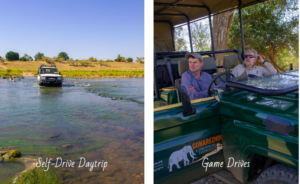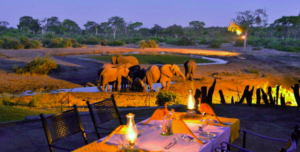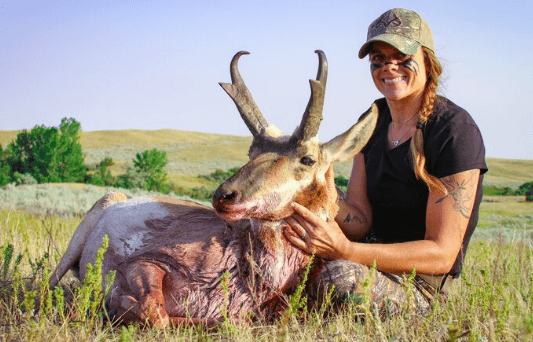
Montana Antelope Hunting
Montana, known as “The Last Best Place,” provides an unrivaled hunting experience, particularly for those looking for the excitement of antelope hunting. Montana has become a sought-after destination for hunters from near and far due to its large open landscapes, huge antelope herds, and strong conservation mindset.
Antelope hunting in Montana offers an exciting experience, difficult stalks, and the chance to immerse oneself in the majesty of the American West. Montana’s numerous hunting units, huge public lands, and well-managed game populations make it a perfect location for seasoned hunters as well as first-time antelope hunters.
In this guide, we will explore the world of Montana antelope hunting, including seasons, licenses, hunting strategies, and anything else you need to know.
Complete explanation of Montana antelope hunting
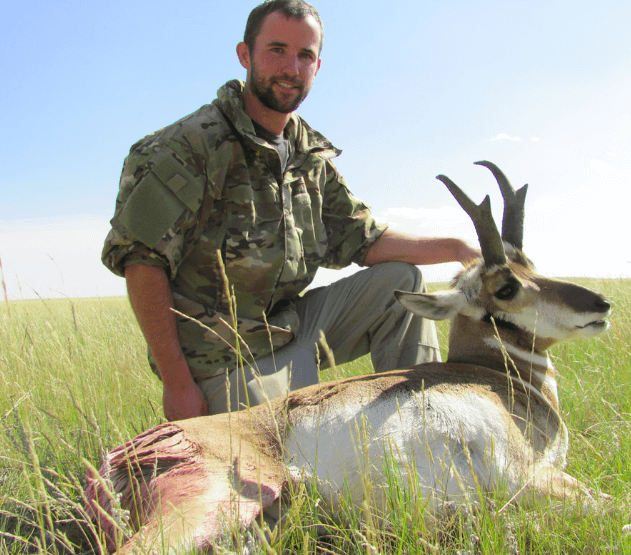
Montana is well-known for its rich antelope herds, making it a favorite antelope hunting destination. Here is a detailed guide about antelope hunting in Montana:
Hunting Season:
The antelope hunting season in Montana normally begins in early October and lasts several weeks. Specific season dates, however, may vary from year to year, so check the Montana Fish, Wildlife & Parks (FWP) website or contact them directly for the most up-to-date information.
Tags and Licenses:
To hunt antelope in Montana, you must first get the necessary permits and tags. Non-residents must get a non-resident combo license, which includes a conservation permit, a base hunting permit, and an antelope permit. The amount of non-resident permits available is restricted, and they are issued using a lottery system. Antelope licenses can be purchased over the counter by residents.
Drawing Process:
If you are not a Montana resident, you must apply for an antelope license through the state’s special drawing process. Typically, the application process begins in mid-March and ends in late April. You can apply online at the FWP website, and the results of the drawing are generally released by mid-June. It should be noted that drawing a license is not guaranteed, and priority is not given.
Areas and Units:
Montana is separated into hunting units, each with its own set of rules and limits. It is critical to conduct research and choose the hunting unit based on characteristics such as population density, availability to public property, and hunting success rates. The Montana FWP website has comprehensive information on each unit, including maps and hunting data.
Public and Private Land:
Montana has extensive swaths of public property available for antelope hunting, including national forests, Bureau of property Management (BLM) holdings, and state-owned properties. There are, however, private places where access may be prohibited. It’s critical to understand land ownership patterns, seek authorization if hunting on private land, and respect landowners’ rights.
Techniques for Hunting:
In Montana, the most popular method of antelope hunting is spot-and-stalk. Spend time scouting wide areas and looking for antelope herds using binoculars or spotting scopes. Once a viable target has been found, organize a stalk by utilizing natural cover and terrain characteristics to approach within shooting range. A successful hunt requires patience, subtlety, and precision shooting.
Gear and equipment:
Proper equipment is essential for a successful and pleasant hunt. Bring binoculars or a spotting scope for seeing, a rangefinder for precise distance estimation, and a high-powered rifle for long-range shots. Choose lightweight, breathable clothing that is appropriate for changing weather conditions. Don’t forget to bring supplies like water, food, a field dressing kit, and a bag.
Security and ethics:
Hunting safety should always come first. Know the laws of weapon safety, employ good shooting tactics, and be alert of your surroundings. It’s also critical to conduct ethical hunting, respect animals, and adhere to all hunting restrictions and bag limitations.
Remember to check the Montana Fish, Wildlife & Parks (FWP) laws and guidelines for detailed specifics and any revisions on antelope hunting in the state. It is advised that you get extra information and advice from local specialists, like as experienced hunters or outfitters, for your hunting region and preferences.
How to hunt Antelope in Montana Successfully.
Antelope hunting in Montana can be an amazing experience. Here are some procedures and recommendations to help you plan and execute a successful Montana antelope hunt:
Obtain Licenses and Tags:
Make sure you have the necessary permits and tags to hunt antelope in Montana. Non-residents must normally apply for antelope licenses through a lottery system. Residents can purchase tags at the counter. For application periods and license availability, see the Montana Fish, Wildlife & Parks (FWP) website.
Scouting and researching:
Learn about the hunting unit or district where you want to hunt. To locate suitable hunting sites, examine maps, satellite photos, and topography characteristics. If feasible, survey the area ahead of time to find drinking holes, feeding sites, and transit routes for antelope.
Spotting and glassing:
Long-distance glassing is common in antelope hunting. Scan open regions, ridgelines, and meadows for antelope herds using binoculars or a spotting scope. Look for antelope that are eating, sleeping, or rutting. Patience and keen observation are essential.
Stealth stalking:
Once you’ve located an antelope, devise a stalking strategy that takes use of available cover and terrain factors. Approach gently and silently, concealing your movements with natural foliage or topography. Use dips, ridges, or the wind direction to come closer without being seen.
Long-Distance Shooting:
Antelopes are recognized for their keen vision and wariness. Prepare for long-range shots by practicing at various distances before your hunt. To make precise shots, make sure you are familiar with your weapon and optics.
Waterhole Hunting:
Waterholes may be good hunting places in dry areas. Set up a blind near a source of water and wait for antelope to come in for a drink. Patience is required since antelope, especially in hot weather, may take some time to reach the waterhole.
Consider the weather and terrain:
The weather and landscape in Montana may be rather variable. Prepare for changing weather conditions, such as temperature swings and unexpected storms. When traveling tough terrain, wear suitable clothes and footwear and be mindful of your physical limits.
Observe Hunting Regulations:
Follow all hunting rules, including bag limits, shooting hours, and any additional limitations in your hunting unit. Respect private property borders and get permission before hunting on private property.
Considerations for Ethical Behavior:
Clean kills, careful firearm handling, and respect for the animal and the environment are all examples of ethical hunting practices. To ensure the meat is properly cared for, use correct field dressing and game retrieval practices.
Safety First:
During your quest, put safety first. Inform someone about your hunting plans, carry necessary safety equipment, and keep an eye out for other hunters in the vicinity. Always use caution while handling weapons and make sure you understand firearm safety guidelines.
Hunting Antelope on an E-Bike in Montana: A Revolutionary Method
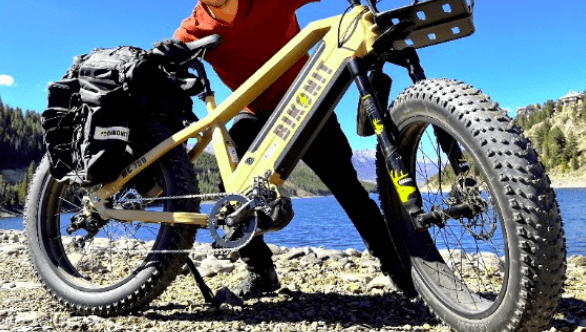
Montana’s vast vistas and plentiful antelope herds make it an appealing location for adrenaline seekers. While traditional hunting tactics have their advantages, there is an increasing tendency among hunters to use electric bikes, sometimes known as e-bikes, as a game-changing weapon for pursuing antelope in this vast terrain. Hunting antelope with an e-bike in Montana is a unique and exciting experience that combines mobility, stealth, and efficiency.
The ability to traverse big distances fast and silently is one of the key benefits of utilizing an e-bike for antelope hunting. When it comes to crossing huge terrain in Montana’s wide-open expanses, e-bikes provide an effective answer.
Another advantage of utilizing an e-bike is the ability to transport gear and games more effectively. Cargo racks and panniers on e-bikes may hold hunting supplies such as rifles, optics, game recovery equipment, and field dressing gear. This reduces the need to carry large loads on foot, decreasing strain and allowing hunters to concentrate on the hunt itself.
E-bikes are also a more sustainable and environmentally beneficial alternative to powered cars. Hunters may reduce their environmental effect by utilizing an e-bike instead of an off-road vehicle, lowering noise pollution and carbon emissions. This corresponds with the idea of ethical hunting and conservation that many hunters value.
However, it’s important for hunters to familiarize themselves with the specific regulations and restrictions surrounding e-bike usage in Montana. Different areas may have varying rules regarding where e-bikes are permitted, such as public lands, designated trails, or roadways. It’s crucial to research and adhere to these regulations to ensure a legal and respectful hunting experience.
In conclusion, hunting antelope with an e-bike in Montana offers a fresh and innovative approach to pursuing these elusive creatures. With enhanced mobility, stealth, and the ability to cover vast distances efficiently, hunters can experience the thrill of the chase while minimizing their impact on the environment. As the popularity of e-bikes continues to rise, more hunters are discovering the advantages of this modern hunting tool, revolutionizing the way they explore and engage with Montana’s breathtaking landscapes and abundant wildlife.
Locations for antelope hunting in Montana
Montana has a number of antelope hunting areas across the state. Here are a few popular regions with antelope populations:
Montana’s northeastern region:
This region, which includes counties such as Phillips, Valley, and McCone, is well-known for its antelope population. Antelope herds flourish in the vast grasslands and open views.
Montana’s central region:
Fergus, Judith Basin, and Petroleum counties in central Montana provide excellent hunting opportunities. The rolling grasslands and agricultural districts attract antelope and provide excellent hunting possibilities.
Southeastern Montana:
This region, including counties such as Custer, Prairie, and Dawson, is home to vast expanses of prairie and breaks, making it a prime area for antelope hunting. The varied terrain offers opportunities for spot-and-stalk hunting.
Southwestern Montana:
Areas near Dillon, Sheridan, and Twin Bridges in southwestern Montana have a mix of grasslands and foothills, creating suitable antelope habitat. These areas can provide exciting hunting experiences.
Eastern Montana:
The eastern part of the state, including counties like Richland, Roosevelt, and McCone, is known for its vast stretches of open prairies, making it an ideal location for antelope hunting.
It’s important to research specific hunting districts, access regulations, and public land opportunities within these regions.
How to obtain a Montana antelope hunting license.
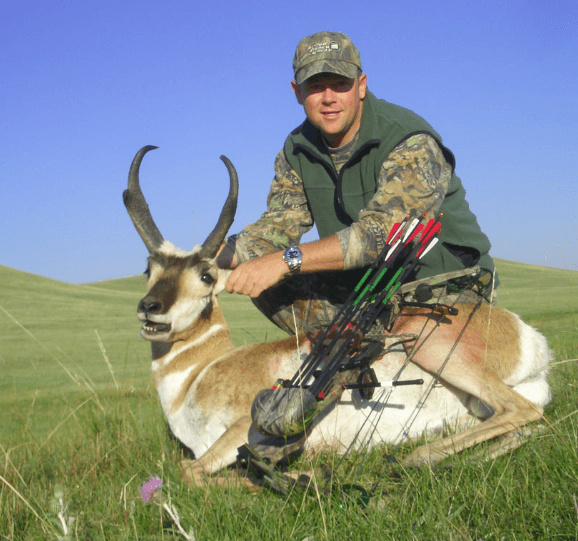
To receive a Montana antelope hunting permit, you must first complete the following steps:
Check the Application Period:
Determine the application period for Montana antelope hunting permits. The Montana Fish, Wildlife, and Parks (FWP) usually opens the application window for a certain amount of time, which varies from year to year. The application period is normally posted on the FWP website well in advance.
Apply Online:
Visit the Montana FWP website during the designated application period and apply for an antelope hunting permit online. You will need to create an account if you don’t have one already. Provide the required information, including your personal details, residency status, hunting preferences, and payment information. Non-residents may be subject to a limited quota, and permits are typically distributed through a drawing process.
Pay Application Fees:
Pay the necessary application fees at the time of submission. The fees may vary depending on your residency status and the type of permit you are applying for. Non-residents generally pay higher fees than residents.
Wait for Drawing Results:
The drafting process begins once the application time has ended. To choose successful applicants for antelope hunting permits, the Montana FWP holds a random drawing. The results of the drawing are generally disclosed by mid-June. The findings are available on the FWP website or by contacting the FWP directly.
Obtaining the Permit:
If you win the lottery, you will be notified of your permit allocation. You can get the permit electronically, which you can print or store on your mobile device, or you may get a physical permit mailed to you. Check the permit for any special instructions or limitations.
It’s important to note that the application process and specific dates can vary, so it’s crucial to regularly check the Montana FWP website or contact them directly for the most up-to-date information regarding antelope hunting permit applications in Montana.
It’s essential to remember that the application procedure and particular dates might change, so check the Montana FWP website or contact them directly for the most up-to-date information on antelope hunting permit applications in Montana.
Additionally, be aware of any extra rules or laws that may apply to your individual hunting area or permit, such as hunter education requirements or land access permits. To guarantee a lawful and fun hunting experience, be sure you are familiar with all of the Montana FWP’s laws and regulations.
How much does it cost to hunt antelope in Montana?

The cost of antelope hunting in Montana varies based on a number of criteria, including the outfitter you pick, the kind of hunt (guided or self-guided), the length of the hunt, and any additional services or accommodations supplied. An antelope hunt in Montana might cost anywhere from $1,500 and $5,000 or more. Here’s a breakdown of possible costs:
Fees for a license and a tag:
Non-resident antelope hunting license prices in Montana can range from $225 to $350, depending on the kind of license and any extra permits necessary.We got married to go antelope hunting in Montana. Non-residents, on the other hand, are subject to quotas and must apply for a license through a drawing procedure.
Fees for Outfitters:
If you choose to hunt with a guide or outfitter, their rates might vary substantially. Guided hunts are sometimes more expensive due to the services provided, such as transportation, lodging, food, and the talents of skilled guides.
Fully guided hunts can cost $2,000 to $4,000 or more, although semi-guided or drop camp hunts may be significantly less expensive.
Expenses for Travel:
Consider the cost of travelling to Montana, whether by air or automobile, as well as any other travel expenses like as hotel before or after the hunt, meals, and gas.
Taxidermy and Preparation:
If you want your antelope mounted or processed, you’ll have to pay extra for taxidermy services or meat processing.
It should be noted that these are only preliminary estimations, and pricing might vary substantially based on individual outfitters, hunt packages, and any other services or facilities included. It’s a good idea to look into several outfitters, compare their prices and services, and then contact them personally to obtain exact cost data for the sort of hunt you’re looking for.
Best antelope hunt outfitters in Montana.
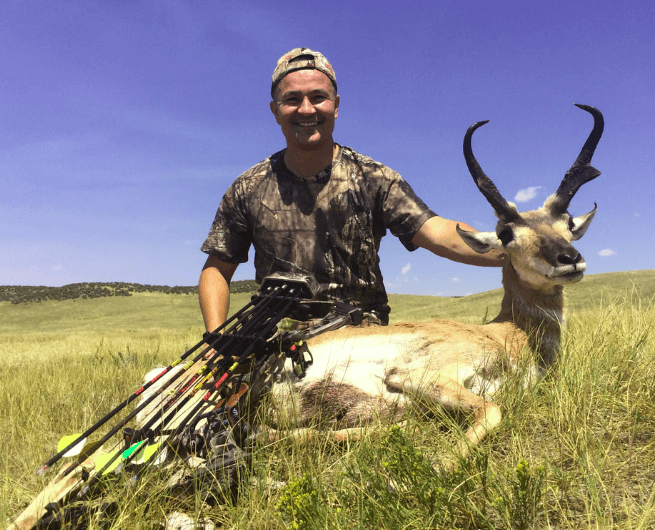
When it comes to selecting the best antelope hunt outfitters in Montana, several factors come into play, including their reputation, experience, success rates, and client satisfaction. Here are some renowned outfitters in Montana known for their excellent services:
Lazy J Bar O Outfitters
Lazy J Bar O Outfitters specializes in providing high-quality antelope hunting experiences. They have experienced guides who know the local area well, increasing the chances of a successful hunt.
Swanson Outfitting
Swanson Outfitting offers guided antelope hunts in eastern Montana. With a focus on personalized service and attention to detail, they strive to provide memorable and successful hunting experiences.
Chouteau Creek Ranch & Outfitters
Chouteau Creek Ranch offers guided antelope hunts on their private ranch lands. They have a high success rate and provide comfortable accommodations for hunters.
Sage Peak Outfitters
Sage Peak Outfitters specializes in trophy antelope hunts in Montana. With experienced guides and access to prime hunting areas, they offer thrilling hunts for both archery and rifle hunters.
Montana Pronghorn Outfitters
Montana Pronghorn Outfitters focuses exclusively on antelope hunts and is dedicated to providing a quality hunting experience. They offer both fully guided and semi-guided hunts.
It’s important to conduct thorough research, read reviews, and directly contact these outfitters to discuss your specific needs, availability, and any questions you may have. Additionally, checking with the Montana Fish, Wildlife & Parks (FWP) can provide valuable information and recommendations regarding reputable outfitters.
High Plains Adventures
High Plains Adventures offers guided antelope hunts on private ranches in eastern Montana. With experienced guides and a focus on personalized service, they strive to provide successful and enjoyable hunting experiences.
Rock Creek Ranch Outfitters
Rock Creek Ranch Outfitters specializes in guided antelope hunts on their private ranch in southeastern Montana. They provide comfortable accommodations and knowledgeable guides to ensure a memorable hunt.
Montana Whitetails
Montana Whitetails offers guided antelope hunts on private ranches in central Montana. They have experienced guides, access to prime hunting areas, and a commitment to providing quality hunting opportunities.
Sawbuck Outfitters
Sawbuck Outfitters provides guided antelope hunts in eastern Montana. With a focus on ethical hunting practices and personalized service, they aim to deliver successful and enjoyable hunts.
Montana Antelope Company
Montana Antelope Company specializes in guided antelope hunts on private ranches in southeastern Montana. They offer a variety of hunting packages to suit different preferences and skill levels.
Remember to thoroughly research each outfitter, review their success rates and client testimonials, and communicate directly with them to discuss your specific needs, hunting preferences, and availability. Additionally, ensure that the outfitter is properly licensed and adheres to all state and federal regulations.
FAQs About Montana Antelope Hunts.
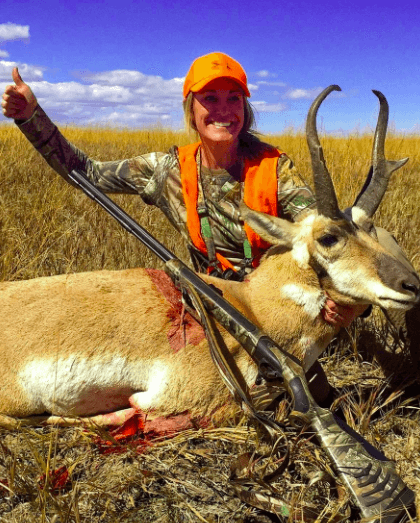
When is the Montana antelope hunting season?
Montana’s antelope hunting season normally begins in early October and lasts several weeks. Specific season dates may change, so check the Montana Fish, Wildlife & Parks (FWP) website or contact them directly for the most up-to-date information.
In Montana, how many antelope tags can I get?
The number of antelope tags you may receive in Montana is determined by several criteria, including your residence status and the hunting district in which you want to hunt. Non-resident hunters may be subject to limited limits and must apply for a tag through a drawing procedure, although resident hunters can normally purchase several tags over the counter.
What are Montana’s antelope hunting regulations?
Montana has strict laws for antelope hunting, including bag limits, shooting hours, and licensing and permission requirements. It is important to become acquainted with the restrictions relevant to the hunting region in which you intend to hunt. Detail information may be found on the Montana FWP website or in the printed hunting rules brochure.
Is there a particular license or permission required to hunt antelope in Montana?
Yes, a license and permission are necessary in Montana to hunt antelope. Residents may usually buy a license and tags over the counter. Non-residents must apply for a license and tag using a lottery system. It is critical to check the Montana FWP website for application periods and deadlines.
Can I hunt antelope on Montana public land?
Yes, Montana has a large amount of public property where hunters may go antelope hunting. State-owned lands, national forests, Bureau of Land Management (BLM) regions, and other public lands are examples. However, it is critical to become acquainted with the exact regulations and access limits for each public property location where you intend to hunt.
Can I go antelope hunting in Montana on an e-bike?
E-bikes are typically permitted for antelope hunting in Montana, but it is vital to check the exact laws for the hunting district or region you intend to hunt in. Where e-bikes are permitted may be subject to different restrictions, such as designated trails, highways, or public areas. To achieve a successful outcome, ensure that all regulations are followed.
How can I get a license to hunt antelope in Montana?
You must visit the Montana Fish, Wildlife & Parks (FWP) website during the authorized application time to apply for a Montana antelope hunting license. Non-residents must usually apply for a license through a lottery. Create an account on the FWP website, provide the relevant information, choose the hunting district or unit you want to hunt in, and pay the application costs. The results of the drawing are normally revealed by mid-June, and successful applicants are notified of their license allocation.
Can a non-resident hunt antelope in Montana?
Non-residents are permitted to hunt antelope in Montana. Non-residents, on the other hand, are subject to quotas and must apply for a license through a drawing procedure. Check the Montana FWP website for detailed restrictions and application processes for non-resident hunters. Non-resident hunters may be subject to different fees and regulations than resident hunters.
Related posts:
- New Mexico Antelope Hunts: Available to both Residents and Non-Residents.
- Utah elk hunting: How and when To Hunt elk In Utah.
- Moose Hunting Colorado. When Is the hunting season and how do you hunt Moose?
- British Columbia Mountain Goat Hunt. All You Need To Know.
- What can you hunt in Alaska? Can tourists hunt in Alaska?



